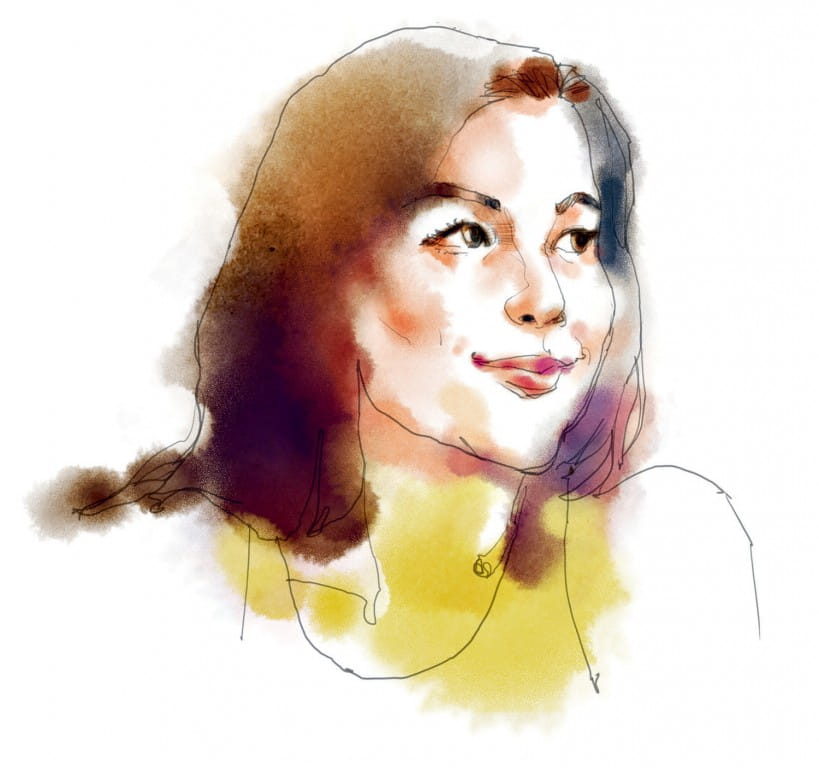Stories > Means To A Good End
Means To A Good End

To help terminally ill patients in Indonesia, ex-investment banker Lynna Chandra found the support she needed in Singapore’s hospice community.
BY WONG SIOW YUEN
ILLUSTRATION KEN LEE
hen Lynna Chandra lost her close friend, Rachel Clayton, to cancer in 2005, it set her thinking about how people, especially those with little means, cope with their final days.
Chandra, 48, an Indonesian, saw how palliative care gave her friend a dignified and peaceful end. Rachel, who had fought cancer for 13 years, also received strong support from medical teams, friends and family. In contrast, many needy Indonesian families cope with the heartache of losing their loved ones with little or no help. Chandra’s heart went out especially to families dealing with sick children.
Determined to make a difference, Chandra quit her Singapore-based job in investment banking and consulting. In 2006, she embarked on her plan to open Indonesia’s first paediatric palliative care facility in Jakarta. It was named Rachel House in honour of her friend.
It was a big step. Not only was she not medically trained, paediatric palliative care was also a pioneering area in Indonesia. But the hospice community in Singapore rallied around her efforts. She credits her mentor, Dr Rosalie Shaw, who was then a consultant with the Department of Palliative Medicine at the National Cancer Centre Singapore and Executive Director of the Asia Pacific Hospice Palliative Care Network, for showing her the ropes; as well as the hospice community in Singapore.
Among those who helped were Ann Choo, who was then the chief operating officer of HCA Hospice Care, a charity that supports terminally ill patients; as well as Edward Poon, who was then head nurse at Dover Park Hospice. Both even flew to Jakarta at their own expense on weekends to contribute their expertise to building Rachel House in its early days. These three instrumental figures remain as advisors to Rachel House.
REACHING OUT
Dr Shaw linked Chandra up with the Singapore International Foundation (SIF) and a collaboration was formed in 2009. Over the next two years, practitioners and caregivers from Singapore trained the nurses from Rachel House in pain management and symptom control, and imparted soft skills in helping patients and their families cope with the burden of terminal illnesses. Chandra saw her Indonesian team learning medical skills and gaining confidence to develop into “a new breed of nurses who were not just servants to doctors”.
Now into its ninth year, Rachel House has touched some 2,000 lives through its palliative care service for children living with lifethreatening conditions such as cancer and HIV in Indonesia. Its tireless advocacy has greatly developed Indonesia’s infant palliative care industry, something she had never envisaged. She says: “I had small dreams to set up a 60-bed hospice for children. But it’s been nine years and we have done much more.”
“I have peace of mind here as everything works and I can connect with everyone. As a hub, Singapore gives me access to funding, skills, knowledge, volunteers and a network of multinational companies.” Lynna Chandra, Rachel House founder
Today, the impact of Rachel House’s efforts is felt in many parts of Jakarta where community volunteers and nurses take home-based palliative care to those in need. At the same time, palliative care is now recognised and has been incorporated into the nursing school curriculum in Indonesia. This year, Rachel House partnered the SIF and the Jakarta Cancer Foundation to train 69 Indonesian medical professionals in palliative care for a three-year project.
These days, Chandra shuttles between Jakarta and Singapore, with the latter as her home base. Singapore was where she spent her secondary school days and the bulk of her banking career. She plans to also offer palliative care to adults in the future after witnessing the pain an office assistant, who was diagnosed with liver cancer, had to go through before he died.
“That made us realise that we wouldn’t and couldn’t stop where we were. Palliative care has to reach everyone in the community,” she says. To this end, Rachel House takes a proactive role in raising awareness for palliative care. Nurses at Rachel House also play a big part.
Aside from providing home care for patients, they set up support networks in the community for discharged patients, conduct training courses in hospitals and speak at conferences.
“Nurses can be powerful voices to help and advocate for their patients. Medical training needs to be accompanied with mass education and awareness to bring about lasting change in mindset and behaviour,” she says.
